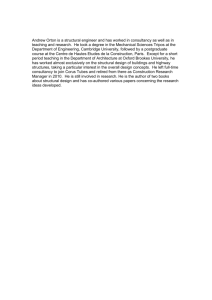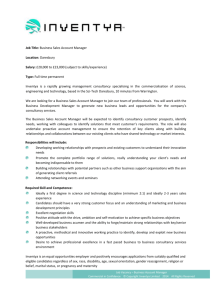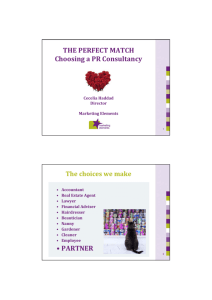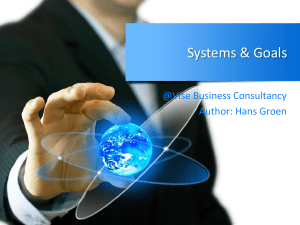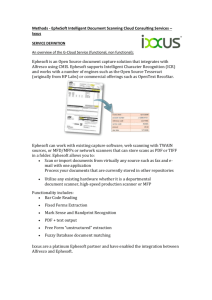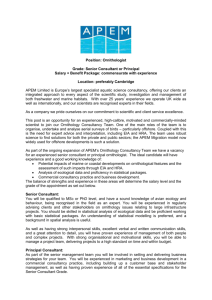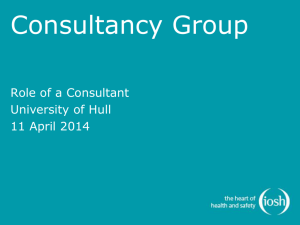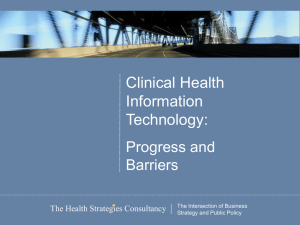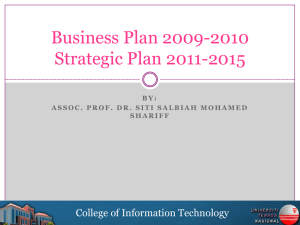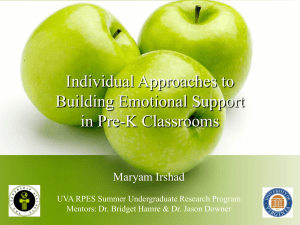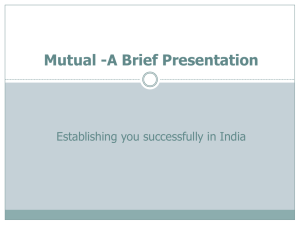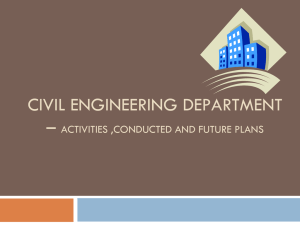slides
advertisement
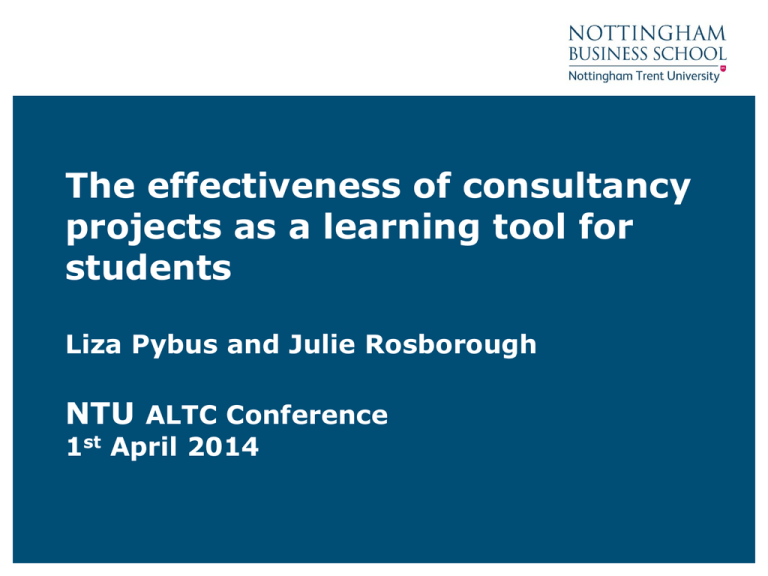
The effectiveness of consultancy projects as a learning tool for students Liza Pybus and Julie Rosborough NTU ALTC Conference 1st April 2014 History • Over time % of international students has increased to 90% on these courses • Many struggled with previous individual dissertation project: – To find a research topic – To find a research base – To work in isolation on a project • In 2010 we revalidated the suite of MScs with an Applied Consultancy Project 2 Support for using consultancy projects as a learning vehicle • Connecting theory and practice (Stringfellow et al, 2006) • The role of consultancy projects as action learning (Heriot et al 2008) • Skills development (Ardley and Taylor, 2010) 3 The Applied Consultancy Project • Final stage of the course • 40 credit point module • Students work in teams of 5 • We provide: – a client with an issue – an initial brief – a supervisor • The students spend around 7 weeks working on the project 4 Consultancy Project Aims • To enable students to: – integrate theory and practice to demonstrate creativity in problem solution – engage with a complex, real project by applying theory to the workplace – understand and apply project management theory and tools – develop as researchers, critical thinkers and professionals • To encourage personal development through reflection • To develop capacity to work together as a professional consultancy team through active participation in a live consultancy project. 5 Project Assessment • 1000 word proposal/work plan Pass/Fail • 3000 word Group Report 25% weighting • Group Presentation 15% weighting • 3000 word Individual Reflective report 30% weighting • 3000 word Individual Literature review 30% weighting 6 Nature of Projects • All unique and real but often involve: – Potential of new market/ competitor analysis – Advice on development of new product or service – Developing a business plan – Designing a marketing strategy – Reviewing of marketing approach – Reviewing a current process – Advising on future business direction 7 So do staff and students think we achieve these aims? Research sample • 5 students on the MSc students who graduated in 2012 or 2013 • 1 employer interview • 1 staff focus group with 5 consultancy project supervisors 9 The view from students Learning Outcomes • All of the students interviewed felt that they met all learning outcomes ‘Different learning outcomes came out of the different assessment types like essays and presentations gave you different things but I felt we covered them all’ 10 The view from students Employability ‘I got from it what you’d get from doing a dissertation but it’s fun and practical. In terms of employability, it was the best thing I did on the course. I don’t think I could go into an interview and talk about a dissertation and that get me the job. The consultancy project was the main focus of all of my interviews until I got this job.’ 11 The view from students Challenges • Group work was identified as one of the biggest challenges ‘While at the start I wanted to work with my friends looking back I don’t think I’d have got as much out of it if I had. In hindsight having problems with the team is a great learning opportunity and you can learn about this in the classroom and we did but doing it really makes you learn about it.’ 12 The view from staff on aims • Integrate theory and practice to demonstrate creativity in problem solution • Engage with a complex, real project by applying theory to the workplace • Understand and apply project management theory and tools • Develop as researchers, critical thinkers and professionals • To encourage personal development through reflection Not always • To develop capacity to work together as a professional consultancy team through active participation in a live consultancy project. Very complex and difficult process Not always Not always Yes Sometimes superficial or a blame game 13 Challenges • Setting client expectations and managing the relationship • Maintaining momentum – Excited at the start but can lose interest in the middle • Getting students to use project management techniques • Managing group dynamics and personality clashes 14 Suggestions for Success Setting client expectations and managing the relationship • Ensure you set realistic expectations and develop knowledge of the nature of the client • Tie down the brief and get sign-off • Appoint one student as main liasion • Be clear that students are there to consult 15 Suggestions for Success Maintaining momentum • Weekly supervisor meetings with progress reports • Client progress updates at 2 key points • Clear team roles/responsibilities 16 Suggestions for Success Project Management • Encourage students to review their Gantt charts regularly and set small milestones • Think carefully about the project management tools you introduce 17 Suggestions for Success Group Management • Give credit for process as well as output • Have clear policy in place to reward/penalise participation/non participation • Encourage students to think as this as an opportunity to manage others • Emphasise the importance of developing global team working skills fro future careers 18 Conclusions • Disconnection between staff and student views on learning achieved • Overall agreement that this type of learning vehicle is worthwhile • Useful CV addition • Careful planning needed about many dimensions to ensure success 19
